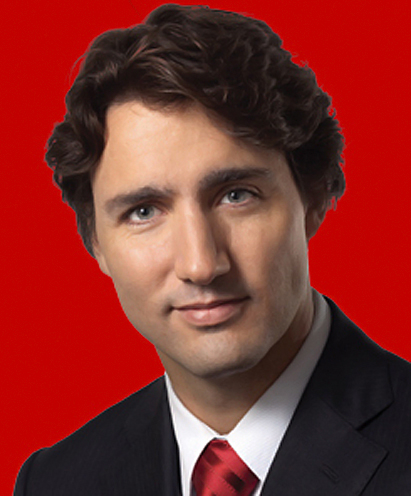Chip in to keep stories like these coming.
It is legitimate to look for real change in economic policy under the new Liberal government. Instead what requires explaining is Justin Trudeau naming Bill Morneau — a leading economic conservative — as finance minister.
Morneau who made millions working for his Father’s firm told Eric Andrew-Gee of the Globe and Mail: “Most of the really smart people find jobs. Even when there’s high youth unemployment. The reality is, it’s 13 per cent. That means 87 per cent are employed.”
Young Canadians looking for change now find an apologist for the status quo is the new Liberal finance minister.
In October 2008, two years after Stephen Harper began his ten years in office, influential McGill economist Christopher Ragan documented how conservative economic thought had for 25 years guided both Liberal and Conservative governments.
Whether it was in giving markets pride of place ahead of government ownership or regulation, reducing marginal tax rates while decrying government deficits and debt, making fighting inflation the priority, adopting trade agreements that overrode national sovereignty, or re-working social policy to eliminate “entitlements”, conservative thinking determined government direction.
Among the losers were the 15 to 24 age group. For decades its unemployment rate has been twice that of other workers.
The timing of the Ragan essay was unfortunate. Lehman Brothers had declared bankruptcy on August 9, 2008 and the Great Financial Crisis was well underway. Queen Elizabeth II was shortly to ask why economists did not seem to understand what they were purporting to study.
Unhappy with the University teaching of its main precepts, French undergraduates revolted against “autistic economics” and the movement spread across Europe and over the channel to the U.K., and on to the U.S. It even hit Harvard, once noted for liberal economics, but now a bastion of American conservative thought.
Measuring the success of conservative economic thinking against standard of general well-being for Canadians reveals its shortcomings. You would think that would be enough for Liberals to understand that a new approach is needed.
Unifor economist Jim Stanford examined the record of the Harper government, and found it was responsible for the worst performance of the Canadian economy in the postwar period.
The early postwar (1945-75) liberal policy consensus was to promote growth in employment through Keynesian counter-cyclical spending, and provide security and well-being through the welfare state.
For major business leader-turned-economist, and later Liberal cabinet minister Eric Kierans, the turning point was the 1980 Venice Summit of the G7 (attended by Pierre Trudeau) which for the first time identified inflation — and not unemployment — as the policy priority.
The policy mix identified by Ragan is termed conservative to distinguish it from the liberal 1945-75 period in policy-making. But calling conservative thinking neoliberal is more accurate because its acknowledges the primacy given to market forces in dominant policy-making.
The virus that invaded the liberal body of economic thought in the late 1970s (and then took up residence for the past 30 plus years) is the idea that economic policy should be designed to increase the rate of return on existing wealth, financial wealth really, personal capital if you wish. Under this system those born to money like the new Finance Minister get priority.
Research by Thomas Piketty and Emanuel Saez showing that a huge proportion of growth in U.S. income was being appropriated by the top 1 percent led top mainstream economist Robert Solow to suggest that a rich-get-richer dynamic was at work in economic policy.
This policy of promoting old money and inheritance is quite different from a policy of creating new sources of wealth by creating good jobs, and ensuring that wealth is re-distributed so as to reduce inequalities.
Seeing the economy principally from the point of view of the investor, not the worker, not the family, or not even the citizen reduced to “consumer” is what has characterized neoliberalism. It was how Bill Morneau sees the world as Daniel James Wright revealed to rabble.ca readers.
If the rate of return on investment goes up when wages go down, and temporary work replaces regular employment, then investors want governments to reduce access to unemployment insurance, make welfare meaner, and force people to work for nothing in order to survive.
Canadians have seen this impoverishment happen under Mulroney, Chrétien, Martin and Harper: that is the neoliberal way.
As was pointed out in a Toronto Star Op-ed modifications made in Quebec to health care amount to a repudiation of the universal principles of medicare in the name of market efficiencies. The authors implore Prime Minister Trudeau to intervene and penalize the province or risk seeing medicare unwind across Canada.
In his 2008 article Ragan argued the triumph of conservative thought was not complete, and pointed to agriculture and the environment as areas for conservative reform.
The Trans-Pacific Partnership deal promises to drive farm families off the land to improve corporate return on investment.
Along with Preston Manning, Ragan created the Ecofiscal commission to convince Canadians that paying more consumer taxes will green the planet. Those who will have trouble paying have no say about such a scheme. Corporations prefer to see consumers pay rather than having their pollution creating activities constricted by governments.
With Morneau, a former Chair of the C.D. Howe Institute, as new Liberal finance minister those expecting real change will need to look beyond what conservatives call change to assess his performance in office.
As Justin Trudeau quipped: it is 2015. But decades of conservative thinking just got influential reinforcement within the new Liberal government.
Chip in to keep stories like these coming.



